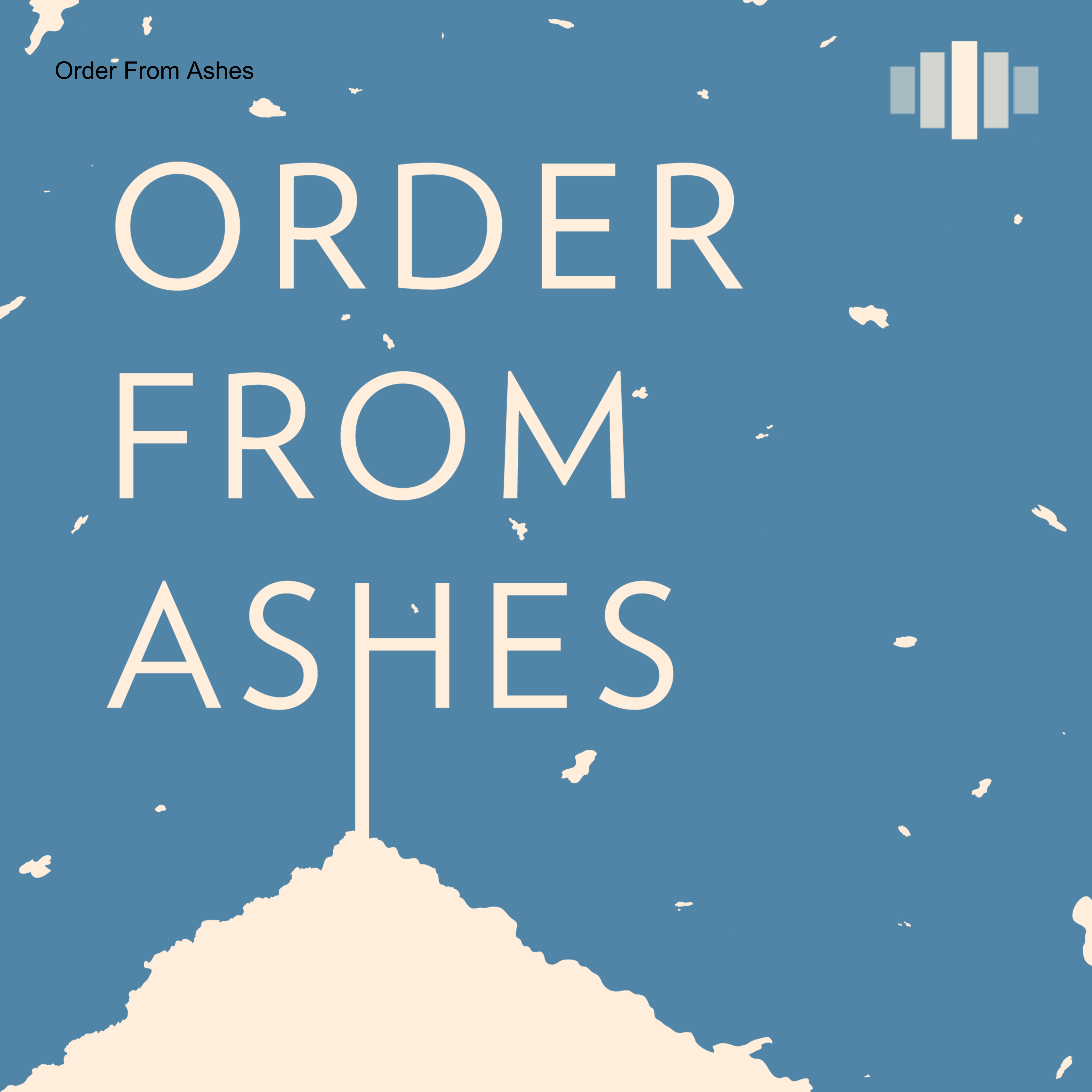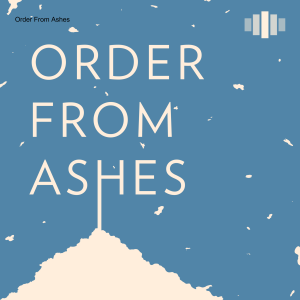
Today’s world is in unprecedented flux. Rights and citizenship are under assault. Authoritarianism is on the rise. No single country can dictate the rules. The Middle East lies at the cutting edge of the crises of our age, with every world power, including the United States, deeply involved. Host Thanassis Cambanis interviews activists, researchers, and decision-makers about the problems of our time, and possible solutions. This podcast is produced by Century International. Our research focuses on the human impact of global policy. We are independent, critical, and progressive. Find our work at https://tcf.org/topics/century-international/.
Episodes

Tuesday Dec 12, 2023
Sistani’s Historic Legacy
Tuesday Dec 12, 2023
Tuesday Dec 12, 2023
During decades of turmoil, war, and regime change in Iraq, Grand Ayatollah Ali al-Sistani has played a critical, often overlooked role—steering Iraq away from sectarian conflict, promoting civic democracy over direct theocracy, and quietly seeking to calm regional tensions.
On this episode of Order from Ashes, Century International fellow Sajad Jiyad explains how Sistani has appealed to a majority of the world’s millions of Shia Muslims with his indirect model of clerical authority, a stark contrast to the competing model of direct clerical rule advanced by his compatriots in Iran.
Jiyad has published a new political biography, God’s Man in Iraq: The Life and Leadership of Grand Ayatollah Ali al-Sistani, which offers the first comprehensive account of Sistani’s legacy and draws on original sources and hundreds of interviews during decades of fieldwork inside Iraq. Jiyad
Observers of Iraq and of Shia power will find God’s Man in Iraq an incomparable appraisal of Sistani’s legacy—and an invaluable guide to the perilous transition that will follow his tenure.
You can learn more and order copies on the book’s homepage. God’s Man in Iraq is also available in Arabic.
Read:
- Commentary: "The Man Who Saved Iraq," by Sajad Jiyad (in English and Arabic)
- Book page: God’s Man in Iraq: The Life and Leadership of Grand Ayatollah Ali al-Sistani, by Sajad Jiyad
- Arabic book page: رجل الله في العراق
Participants:
- Sajad Jiyad, fellow, Century International
- Thanassis Cambanis, director, Century International

Wednesday Nov 29, 2023
How Is the Gaza War Affecting the Middle East?
Wednesday Nov 29, 2023
Wednesday Nov 29, 2023
The Middle East has faced growing instability, violence, and the risk of a wider war ever since October 7.
Most attention is understandably focused on Israel, where 1,200 people were killed in a single day, and Gaza, where the death toll is steadily climbing past 11,000, the majority children and women.
But the wider region is experiencing a level of violence that is cause for alarm: near-daily clashes between Lebanon’s Hezbollah and Israel; steady attacks on the U.S. military in Iraq and Syria; and increasingly bold military initiatives by Yemen’s Houthi rebel forces.
How has the Gaza war changed the wider Middle East? What new dynamics are shaping conflicts and diplomacy among the regional powers and in the region’s many simmering conflicts? How will America’s bear hug of Israel affect other American interests in the Middle East?
Century International fellows Aron Lund, Sam Heller, and Thanassis Cambanis are joined by Michael Wahid Hanna from International Crisis Group to step back from the day-to-day developments of the Gaza war and assess the changing regional context.
Read:
- Commentary: “It’s Time for a Ceasefire in Gaza—and Then a New Push for Peace,” by Thanassis Cambanis, Dahlia Scheindlin, and Sam Heller
- Commentary: “America Needs to Prevent a Regional War in the Middle East,” by Sam Heller and Thanassis Cambanis
Participants:
- Sam Heller, fellow, Century International
- Aron Lund, fellow, Century International
- Michael Wahid Hanna, director, U.S. program, International Crisis Group
- Thanassis Cambanis, director, Century International

Tuesday Nov 07, 2023
Aid That Backfires
Tuesday Nov 07, 2023
Tuesday Nov 07, 2023
Foreign donors are propping up Lebanon’s public institutions and services with the kind of aid they ordinarily provide to failed states. Will this aid create more problems than it solves for Lebanon’s long-suffering people?
On this episode of Century International’s Order from Ashes podcast, fellow Sam Heller discusses the alarming findings of his report, “Adopt a Ministry: How Foreign Aid Threatens Lebanon’s Institutions.”
As Lebanon’s crisis worsens, foreign donors have stepped in to take over many core functions normally fulfilled by the government. Is this aid, which is vital in the short term, threatening the viability and long-term recovery of Lebanon?
Donors, aid agencies, Lebanese officials and experts can start by getting honest about the tradeoffs, Sam argues. A first step toward changing the counterproductive aid dynamic requires a full picture of foreign support for Lebanon, so donors and the Lebanese government can coordinate aid to useful ends and not just perpetuate dependency and state breakdown.
Read:
- Report: “Adopt a Ministry: How Foreign Aid Threatens Lebanon’s Institutions,” by Sam Heller
- Commentary: “International Aid Keeps Lebanon Afloat. It Could Also Be Destroying Its Institutions,” by Sam Heller [in English and Arabic]
Participants:
- Sam Heller, fellow, Century International
- Thanassis Cambanis, director, Century International

Monday Oct 23, 2023
Shia Power: Sectarian Prejudice
Monday Oct 23, 2023
Monday Oct 23, 2023
On this episode of the Order From Ashes podcast, Ali Al-Mawlawi traces the long history of anti-Shia prejudice in Iraq. That prejudice, he argues, distorts contemporary debates over whether Shia factions are undermining the state when they compete for power.
This episode of Order From Ashes is the fourth and final episode in “Shia Power,” a series about the transformation of Shia politics in Iraq, and what Iraq’s experience teaches us about the role of religion in politics everywhere.
In episode 1 of “Shia Power,” Sajad Jiyad and host Thanassis Cambanis chart the powerful role of religion and the Shia clergy in the creation of a new Iraqi order after Saddam Hussein. In episode 2, Marsin Alshammary draws on her fieldwork in the seminaries of Najaf to argue that clerical authority has not diminished, despite setbacks over the last twenty years. In episode 3, Taif Alkhudary chronicles the revolutionary efforts of the Tishreen protest movement to establish an alternative to religious politics. In episode 4, the final in this series, Ali Al-Mawlawi connects some of today’s sectarian rhetoric to Iraq’s long history of anti-Shia prejudice.
Participants:
- Ali Al-Mawlawi,
- Thanassis Cambanis, director, Century International
Read:
Report: “Iraqi Shia Factions Are Supposedly ‘Anti-state.’ But State Power Is What They Want,” by Ali Al-Mawlawi
Book: Shia Power Comes of Age
Project: Shia Politics

Tuesday Oct 10, 2023
Shia Power: Iraq’s Nationalist Revolutionaries
Tuesday Oct 10, 2023
Tuesday Oct 10, 2023
On this episode of the Order From Ashes podcast “Shia Power” series, Taif Alkhudary explains how the October 2019 protests formed a popular response to years of thwarted democratization.
The Tishreen protests movement, Alkhudary argues, represents an indigenous democratization movement that is resisting the putative democracy put in place after the U.S. invasion. Since 2003, Iraqis have endured corruption, dysfunction, and ethno-sectarian tensions, which the political elite justified as the cost of democracy. The Tishreen movement, while still politically immature, has revealed an alternate path.
This episode of Order From Ashes is the third in a four-part series about the transformation of Shia politics in Iraq, and what Iraq’s experience teaches us about the role of religion in politics everywhere.
In episode 1 of “Shia Power,” Sajad Jiyad and host Thanassis Cambanis chart the powerful role of religion and the Shia clergy in the creation of a new Iraqi order after Saddam Hussein. In episode 2, Marsin Alshammary draws on her fieldwork in the seminaries of Najaf to argue that clerical authority has not diminished, despite setbacks over the last twenty years. In episode 3, Taif Alkhudary chronicles the revolutionary efforts of the Tishreen protest movement to establish an alternative to religious politics. In episode 4, the final in this series, Ali Al-Mawlawi connects some of today’s sectarian rhetoric to Iraq’s long history of anti-Shia prejudice.
Participants:
- Taif Alkhudary, research officer, LSE Middle East Center, and PhD candidate, Cambridge
- Thanassis Cambanis, director, Century International
Read:
- Report: “Young Revolutionary Parties Are Still Iraq’s Best Hope for Democracy,” by Taif Alkhudary
- Book: Shia Power Comes of Age
- Project: Shia Politics

Sunday Oct 01, 2023
Shia Power: Do Clerics Still Have Authority?
Sunday Oct 01, 2023
Sunday Oct 01, 2023
On this episode of the Order From Ashes podcast, Marsin Alshamary explains why, despite some setbacks, Shia clerics in Iraq still wield a great deal of authority.
Protest movements have rejected religion in politics, while corrupt politicians have sullied the reputations of religious factions. But clerics and their institutions remain powerful players in Iraqi society even as their roles change.
This episode of Order From Ashes is the second in “Shia Power,” a four-part series about the transformation of Shia politics in Iraq, and what Iraq’s experience teaches us about the role of religion in politics everywhere.
In episode 1 of “Shia Power,” Sajad Jiyad and host Thanassis Cambanis chart the powerful role of religion and the Shia clergy in the creation of a new Iraqi order after Saddam Hussein. In episode 2, Marsin Alshammary draws on her fieldwork in the seminaries of Najaf to argue that clerical authority has not diminished, despite setbacks over the last twenty years. In episode 3, Taif Alkhudary chronicles the revolutionary efforts of the Tishreen protest movement to establish an alternative to religious politics. In episode 4, the final in this series, Ali Al-Mawlawi connects some of today’s sectarian rhetoric to Iraq’s long history of anti-Shia prejudice.
Read:
Report: “Shia Clerics in Iraq Haven’t Lost Their Authority,” by Marsin Alshamary
Book: Shia Power Comes of Age
Project: Shia Politics
Participants:
- Marsin Alshamary, assistant professor of political science, Boston College
- Thanassis Cambanis, director, Century International

Monday Sep 25, 2023
Shia Power: What’s an Islamist?
Monday Sep 25, 2023
Monday Sep 25, 2023
On this episode of the Order From Ashes podcast, Sajad Jiyad plumbs the complex evolution of Shia Islamism during two decades at the center of Iraqi power.
This episode of Order From Ashes is the first in “Shia Power,” a four-part series about the transformation of Shia politics in Iraq, and what Iraq’s experience teaches us about the role of religion in politics everywhere.
A new edited volume from Century International, Shia Power Comes of Age: The Transformation of Islamist Politics in Iraq, 2003–2023, maps the radical transformation of Shia Islamist politics in Iraq over the last two decades. Contributors include Taif AlKhudary, Ali Al-Mawlawi, Marsin Alshamary, Thanassis Cambanis, Maria Fantappie, Fanar Haddad, Sajad Jiyad, Renad Mansour, and Ben Robin-D’Cruz.
Sajad and Thanassi, directors of Century International’s Shia Politics project, reflect on the lessons of Iraq’s Shia Islamists for politicians, policymakers, and researchers.
In episode 1 of “Shia Power,” Sajad Jiyad and host Thanassis Cambanis chart the powerful role of religion and the Shia clergy in the creation of a new Iraqi order after Saddam Hussein. In episode 2, Marsin Alshammary draws on her fieldwork in the seminaries of Najaf to argue that clerical authority has not diminished, despite setbacks over the last twenty years. In episode 3, Taif Alkhudary chronicles the revolutionary efforts of the Tishreen protest movement to establish an alternative to religious politics. In episode 4, the final in this series, Ali Al-Mawlawi connects some of today’s sectarian rhetoric to Iraq’s long history of anti-Shia prejudice.
Read:
Book: Shia Power Comes of Age
Project: Shia Politics
Participants:
- Sajad Jiyad, fellow, Century International
- Thanassis Cambanis, director, Century International

Tuesday Jul 11, 2023
Facing Iraq’s Climate Catastrophe
Tuesday Jul 11, 2023
Tuesday Jul 11, 2023
In a miserable twist for the people who live there, Iraq has become a front-line test lab for the extreme effects of climate change. A combination of forces, accelerated by bad human decisions, has dramatically degraded Iraq’s environment. And Iraq’s experience is a harbinger of what’s coming to the rest of the world.
On this episode of the Order From Ashes podcast, Century International fellow Zeinab Shuker explores the unhappy mix of factors that has made Iraq so inhospitable.
Zeinab is leading “Living the Climate Emergency: Lessons from Iraq,” a new Century International project exploring how policymakers and researchers can draw on the case of Iraq and its neighbors to translate into action the growing consensus that the climate crisis is already here.
Century’s Climate Emergency Project will connect field researchers, policymakers, and a wider audience through roundtables, public events, podcasts, and reports. Future research in this project will place today’s crisis in a historical context; map the contours and human impact of climate change in Iraq and its neighborhood; and finally, drawing on the lessons of the extreme case in Iraq, make projections about the future and propose solutions.
Read:
- “The Deep Roots of Iraq’s Climate Crisis,” Century International report by , Zeinab Shuker
- “Iraq Is Overheating. How Can It Mitigate the Effects of Climate Change?,” Century International commentary by Zeinab Shuker
Explore:
Project homepage, “Living the Climate Emergency: Lessons from Iraq”
Participants:
- Zeinab Shuker, fellow, Century International
- Thanassis Cambanis, director, Century International

Monday Jun 12, 2023
Lebanon’s Botched Economic Rescue
Monday Jun 12, 2023
Monday Jun 12, 2023
Lebanon’s ruling elites have sabotaged talks with the International Monetary Fund (IMF), which offered the last hope for reforms that could save the country’s economy and improve life for millions of suffering people.
On this episode of the Order From Ashes podcast, researchers Sami Zoughaib, from The Policy Institute in Lebanon, and Sam Heller, from Century International, reveal how Lebanon’s elites have misled the public on the reality of the country’s dire situation.
Without some course change, Zoughaib and Heller argue, Lebanon will not have the IMF program it needs to halt its economic collapse. But public pressure could still force elites to act responsibly—or at least hold those elites accountable.
The two researchers discuss the findings in their new report, a joint production of Century International and The Policy Institute in Lebanon. It is part of “Networks of Change: Reviving Governance and Citizenship in the Middle East,” a Century International project supported by the Carnegie Corporation of New York and the Open Society Foundations.
Read:
“The Shadow Plan: How Lebanese Elites Are Sabotaging Their Country’s IMF Lifeline,” by Sami Zoughaib and Sam Heller.
Participants:
- Sami Zoughaib, economist and research manager at The Policy Initiative in Lebanon
- Sam Heller, fellow, Century International
- Thanassis Cambanis, director, Century International

Tuesday May 09, 2023
Power and Power in Lebanon
Tuesday May 09, 2023
Tuesday May 09, 2023
The scramble for electricity has produced new interest groups that will shape the evolution of Lebanon’s decaying power sector, and the country’s future. Lebanese people endure erratic and expensive electricity supplies—not because of some staggering technical challenge but because of corrupt, often criminal, monopolies that control the energy sector.
On this episode of the Order From Ashes podcast, Century International fellow Zachary Cuyler talks about the competing interest groups that reap the benefits of Lebanon’s failed electricity system.
Zack delves deeper into the dysfunction in Lebanon’s electricity sector in his recent Century International commentary, “Lebanon’s Grid Has Collapsed. What Comes Next?”
Participants:
- Zack Cuyler, fellow, Century International
- Thanassis Cambanis, director, Century International
